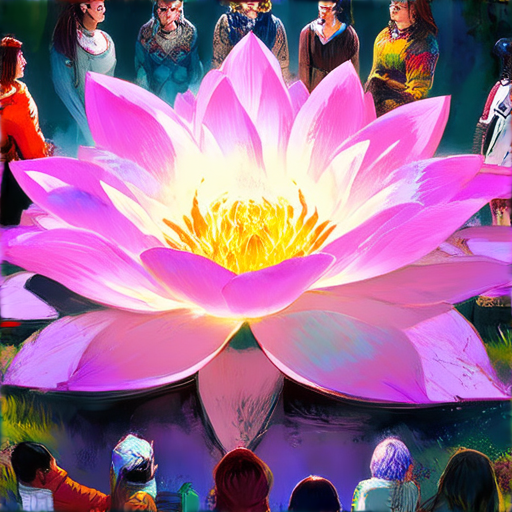Embarking on a journey of self-discovery and exploration, individuals often seek out immersive cultural experiences that allow them to connect with diverse communities and broaden their perspectives. These encounters not only enrich our understanding of global cultures but also foster empathy, tolerance, and a deeper appreciation for the complexities of human expression. As we delve into the realm of cultural experiences, we’ll examine the intricacies of traditional and modern cultural practices, everyday interactions, and the art of navigating cross-cultural relationships.

Example of Cultural Experience
Cultural experiences encompass a broad spectrum of activities that allow individuals to immerse themselves in the customs, traditions, and values of a particular community.
-
Participating in Local Festivals and Celebrations
Attending local festivals and celebrations provides a unique opportunity to engage with the local culture, learn about its history, and appreciate its diversity.
- For instance, attending the Tomatina festival in Spain allows participants to experience the vibrant colors, music, and food associated with Spanish culture.
- Similarly, participating in the Holi festival in India enables individuals to understand the significance of color and joy in Indian culture.
-
Engaging in Traditional Arts and Crafts
Learning traditional arts and crafts, such as pottery-making, weaving, or woodcarving, offers a chance to connect with the local heritage and appreciate the skill and craftsmanship involved.
- In Japan, visitors can participate in traditional tea ceremonies, which involve intricate rituals and beautiful ceramics.
- In Africa, artisans can teach visitors how to create colorful textiles and patterns using traditional techniques.
-
Tasting Local Cuisine
Savoring local cuisine allows individuals to experience the flavors, aromas, and ingredients characteristic of a particular region or culture.
- In Italy, visitors can indulge in authentic pizza-making classes, learning the secrets behind Neapolitan-style pizzas.
- In Thailand, tourists can take cooking classes to prepare spicy dishes like tom yum soup and green curry.
-
Visiting Historical Landmarks and Museums
Exploring historical landmarks and museums provides insight into the past, allowing visitors to understand the evolution of cultures and civilizations.
- The Acropolis Museum in Greece showcases ancient Greek art and architecture, offering a glimpse into the country’s rich history.
- The National Museum of Anthropology in Mexico City features exhibits on the country’s indigenous cultures, highlighting the diversity and richness of Mexican heritage.
These examples illustrate the various ways in which cultural experiences can be enjoyed and appreciated, whether through participation in local festivals, engagement in traditional arts and crafts, savoring local cuisine, or visiting historical landmarks and museums.
By immersing oneself in these experiences, individuals can gain a deeper understanding and appreciation of the complexities and nuances of different cultures, fostering empathy, tolerance, and cross-cultural understanding.
Regular Cultural Experiences
As I navigate through my daily life, I encounter various aspects that contribute to my cultural experience.
- Technology: My smartphone, laptop, and AirPods are essential tools that facilitate communication, entertainment, and access to information.
- Social Interactions: Engaging with neighbors, colleagues, and friends helps me understand different perspectives and values.
- Cultural Institutions: Visiting temples, schools, and workplaces exposes me to diverse traditions, customs, and ways of life.
- Nature: Observing animals, plants, and the environment around me fosters appreciation for the interconnectedness of our ecosystem.
- Food and Drink: Savoring local cuisine, coffee, and other beverages allows me to experience the flavors and aromas of different cultures.
- Community Spaces: Grocery stores, hospitals, and public spaces provide opportunities to interact with people from various backgrounds.
In addition to these everyday experiences, I also engage with cultural events and activities that enrich my understanding of the world.
- I attend festivals and celebrations that showcase traditional music, dance, and art.
- I participate in language exchange programs to learn about different languages and cultures.
- I read books and articles that explore the history, customs, and values of various societies.
- I watch documentaries and films that highlight the diversity of human experiences.
By embracing these regular cultural experiences, I cultivate empathy, tolerance, and a deeper appreciation for the complexities of human existence.
At Bending Borders, we believe that exploring cultural differences is essential for building bridges between communities.
We invite you to join us on this journey of discovery and share your own stories of cultural experiences.

Experience Japanese Culture in Japan
Immerse yourself in the vibrant culture of Japan by exploring its rich traditions, customs, and daily life.
-
Traditional Arts and Crafts
Discover the beauty of traditional Japanese arts and crafts, such as woodblock printing, pottery, and textiles.
- Visit the Gion district in Kyoto to see geisha performances and try on kimonos.
- Explore the Tokyo National Museum to learn about Japanese art and history.
-
Cuisine and Food Culture
Indulge in Japan’s delicious cuisine, which combines fresh ingredients, seasonality, and simple preparation methods.
- Try sushi at the Tsukiji Fish Market in Tokyo or at a local restaurant in Osaka.
- Sample seasonal foods at a ryokan (Japanese inn) or a local market.
-
Festivals and Celebrations
Participate in Japan’s vibrant festivals and celebrations, which showcase its rich cultural heritage.
- Attend the Cherry Blossom Festival (Hanami) in March-April to admire the beautiful blooms.
- Join the Star Festival (Tanabata) in July-August to celebrate love and relationships.
-
Temples and Shrines
Visit Japan’s majestic temples and shrines, which reflect its spiritual and philosophical traditions.
- Explore the Fushimi Inari shrine in Kyoto, famous for its thousands of vermilion torii gates.
- Visit the Kiyomizu-dera temple in Kyoto, a UNESCO World Heritage Site.
Practical Tips
To fully experience Japanese culture, consider the following tips:
- Learn basic Japanese phrases, such as “konnichiwa” (hello), “arigatou” (thank you), and “sumimasen” (excuse me).
- Dress modestly when visiting temples and shrines.
- Respect local customs and traditions, especially during festivals and celebrations.
Getting Around
Japan has a well-developed public transportation system, making it easy to get around.
- Use the JR train network to travel between cities and towns.
- Ride the subway or bus to explore urban areas.
Accommodation
Choose from various types of accommodation, ranging from luxury hotels to budget-friendly guesthouses.
- Stay at a ryokan (Japanese inn) to experience traditional hospitality.
- Book a hotel room in a central location to access major attractions.
Insider Tip
Consider purchasing a Japan Rail Pass for unlimited train travel.

Examples of Cross Cultural Experiences
-
Cultural Immersion Programs
- Homestays: Living with local families allows for authentic interactions and understanding of daily life.
- Language courses: Learning a new language through immersion programs fosters deeper connections with native speakers.
- Cooking classes: Preparing traditional meals alongside locals reveals the significance of food in various cultures.
-
Volunteer Work Abroad
- Community development projects: Collaborating with local communities on initiatives promotes mutual respect and understanding.
- Environmental conservation efforts: Participating in eco-friendly projects showcases the importance of preserving natural resources.
- Educational programs: Assisting in schools or educational centers highlights the value of education in diverse societies.
-
Festivals and Celebrations
- Diverse festivals: Attending events like Diwali, Chinese New Year, or Carnaval exposes participants to vibrant traditions.
- Cultural performances: Witnessing traditional music, dance, or theater showcases the richness of cultural heritage.
- Culinary experiences: Sampling local cuisine during festivals deepens appreciation for the role of food in celebrations.
-
Travel and Exploration
- International travel: Visiting foreign countries broadens perspectives on customs, values, and ways of life.
- Cultural tours: Guided excursions highlight significant landmarks, historical sites, and cultural institutions.
- Street food adventures: Exploring local markets and trying street food reveals the diversity of culinary traditions.
Cultural Activities
We’re passionate about exploring the rich tapestry of human expression through various cultural activities.
-
Traditional Music Festivals
Immerse yourself in the vibrant rhythms and melodies of traditional music festivals around the world. From the lively sounds of African drumming to the soulful ballads of Latin American folk music, these events celebrate the diversity of musical heritage.
- Attend the iconic Coachella Valley Music and Arts Festival in California, USA, which showcases a diverse lineup of artists and genres.
- Experience the enchanting sounds of Indian classical music at the annual Sawai Gandharva Bhimsen Mahotsav in Pune, India.
-
Dance Performances
Get swept away by the beauty and elegance of dance performances from around the globe. From the intricate steps of traditional Japanese Kabuki theater to the energetic beats of contemporary hip-hop, dance has the power to transcend cultures and languages.
- Watch a mesmerizing performance of the famous Ballet Russe de Monte Carlo at the Palais Garnier in Paris, France.
- Witness the stunning acrobatic feats of Chinese martial arts at the Shanghai Acrobatic Troupe in China.
At Bending Borders, we believe that cultural activities have the power to unite us and foster greater understanding between people from different backgrounds.

What Are Social and Cross-Cultural Skills Examples?
Developing effective social and cross-cultural skills is crucial for navigating diverse environments, fostering meaningful relationships, and achieving personal and professional growth.
-
Adaptability
Being open-minded and adaptable allows individuals to adjust to new situations, customs, and expectations, promoting seamless interactions and collaborations.
- Embracing cultural differences and nuances
- Being receptive to feedback and suggestions
- Displaying flexibility in communication styles
-
Empathy and Respect
Practicing empathy and respect enables individuals to understand and appreciate diverse perspectives, values, and beliefs, leading to stronger connections and more harmonious relationships.
- Active listening and asking thoughtful questions
- Recognizing and valuing individual differences
- Maintaining a non-judgmental attitude
-
Intercultural Awareness
Cultivating intercultural awareness involves understanding the complexities of cultural dynamics, recognizing biases, and developing strategies to navigate multicultural settings effectively.
- Staying informed about cultural norms and customs
- Identifying and challenging personal biases
- Fostering inclusive and respectful environments
-
Cultural Sensitivity
Demonstrating cultural sensitivity requires being aware of the impact of one’s words and actions on others, avoiding cultural insensitivity, and making conscious efforts to promote cross-cultural understanding.
- Avoiding stereotypes and cultural appropriation
- Using inclusive language and terminology
- Respecting cultural traditions and practices
By incorporating these social and cross-cultural skills into daily life, individuals can enhance their ability to communicate effectively, build strong relationships, and thrive in diverse environments.
Bending Borders encourages readers to explore our cultural exploration platform, which offers valuable insights, travel stories, and global perspectives to foster greater understanding and appreciation of the world’s diverse cultures.

0 Comments